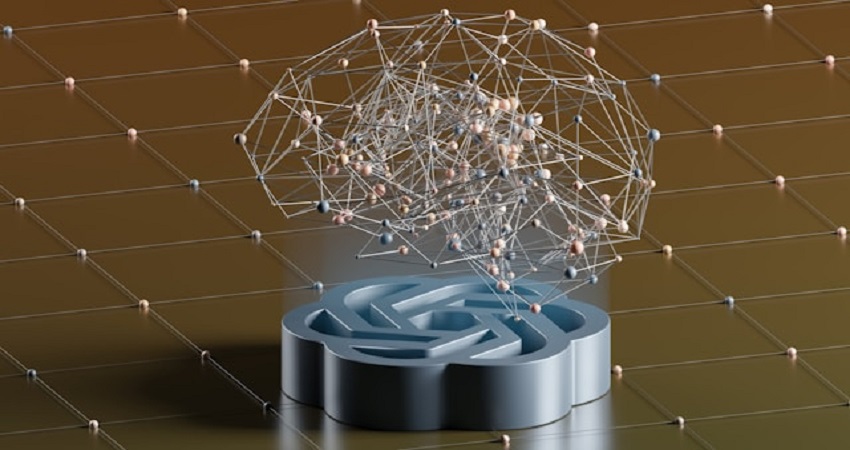
Artificial Intelligence is no longer a futuristic concept—it has become a practical part of everyday life. From waking up in the morning to managing tasks throughout the day, AI tools now help us save time, increase productivity, and reduce stress. Automating daily routines with AI has turned into a lifestyle choice for students, professionals, and even families who want to simplify life. In this blog, we will explore how AI is reshaping daily activities, the best tools available, and practical steps to integrate automation into your routine.
Why Automate Daily Routines with AI?
The modern lifestyle is fast-paced, leaving us with countless tasks to juggle every day. By automating repetitive or time-consuming chores, AI allows us to focus on the things that truly matter. Imagine a world where your reminders are set automatically, your emails draft themselves, your meetings are summarized without effort, and even your home adapts to your needs. That’s what automation with AI looks like in 2025.
The benefits are endless:
Time efficiency: AI cuts down hours of manual work.
Better focus: Routine tasks run in the background, freeing mental space.
Personalization: AI adapts to your habits and preferences.
Stress reduction: With less to worry about, your daily flow becomes smoother.
Morning Made Smarter with AI
Your day can begin with automation the moment you wake up. Smart assistants like Google Assistant, Siri, and Alexa are now far more advanced than before. Instead of just setting alarms, they provide real-time weather updates, news summaries, and reminders based on your calendar. AI-powered sleep tracking apps adjust your alarm to wake you up at the perfect time in your sleep cycle, ensuring you feel refreshed.
Even morning routines such as making coffee or adjusting room lighting can be automated through smart home devices. For example, you can program your smart coffee machine to start brewing the moment your alarm rings or have your lights slowly brighten to mimic natural sunlight. These small automations make mornings easier, more efficient, and less stressful.
Automating Work and Study Tasks
Whether you are a student attending online classes or a professional handling meetings, AI has made everyday tasks less demanding. Tools like Otter.ai automatically transcribe your classes or business meetings, allowing you to focus on the discussion instead of frantically taking notes. Notion AI helps in summarizing study materials, creating task lists, and organizing projects in a structured way.
Email writing, once a tedious task, can now be handled by AI tools such as Grammarly or ChatGPT. From fixing grammar mistakes to generating professional replies, these assistants streamline communication. Project management has also evolved; platforms like ClickUp AI and Monday.com AI assistants automate scheduling, task prioritization, and reminders.
Smart Personal Productivity
AI tools are not just for work—they also play a role in personal productivity. Zapier and IFTTT allow you to connect multiple apps and automate workflows. For example, every time you receive an important email attachment, it can automatically be saved into your Google Drive. Similarly, social media scheduling tools powered by AI can post content across multiple platforms at the best times, eliminating manual uploads.
Voice assistants have become like personal secretaries. You can simply ask Siri or Google Assistant to add tasks to your to-do list, set reminders, or check your schedule. These features may seem small, but together they create a huge impact on overall productivity.
Automating Health and Wellness
AI is also transforming how we take care of our health. Fitness trackers like Fitbit and Apple Watch now use AI to analyze activity patterns and recommend personalized workout routines. Nutrition apps can create meal plans based on your dietary preferences and health goals. Some even track calorie intake by scanning food with your phone’s camera.
Mental wellness hasn’t been left behind. AI-based meditation and therapy apps such as Woebot provide real-time support for managing stress, anxiety, and emotional well-being. Even medication reminders can now be automated through AI-driven health apps, ensuring you never miss a dose.
AI at Home
Home automation in 2025 has become incredibly advanced. Smart thermostats adjust room temperature based on your daily patterns, while AI-powered security systems monitor your home and alert you about suspicious activities. Household chores are easier too—robot vacuum cleaners with AI mapping technology can now clean more efficiently, while smart refrigerators suggest grocery lists based on what’s running low.
Entertainment is also smarter. Streaming services like Netflix and Spotify use AI to personalize recommendations, so you spend less time searching and more time enjoying your favorite content. Even shopping has evolved—AI assistants can compare prices, find discounts, and order groceries online with a single command.
Real-Life Examples of AI Automation
Students use AI to transcribe lectures, summarize notes, and organize study schedules.
Professionals rely on AI to schedule meetings, draft emails, and analyze business reports.
Families manage grocery lists, household chores, and smart home devices with AI assistants.
These examples show how AI isn’t just about convenience—it is about creating balance in everyday life.
Tips for Getting Started with AI Automation
If you’re new to AI, the best way to begin is by starting small. Pick one or two tools that solve your immediate challenges, such as email drafting or note-taking. Experiment with connecting multiple apps to create smooth workflows. Always be mindful of data privacy, and avoid sharing sensitive information with AI platforms. Lastly, remember that AI is a support system, not a replacement for human creativity and decision-making.
The Future of AI in Daily Life
Looking ahead, AI is set to become even more intuitive. Virtual assistants will anticipate your needs before you even ask. Healthcare apps may track vital signs in real time and alert doctors instantly. Smart homes will become fully adaptive, adjusting everything from temperature to music based on your mood. The future of AI in daily routines is about seamless integration, where technology quietly works in the background to make life easier.